The Lack of Nuance in Media Criticism
The discourse of entertainment media is a reflection of the media landscape people partake in. The internet is considered one of the greatest inventions of humanity, something that has allowed millions of people across the globe to connect and communicate in means never before imagined. The internet has not only impacted how people communicate, use information, and see the world, and express their thoughts. Digital platforms such as streaming services and YouTube have given public individuals their own voices and the opportunity to create their own media, garner fans, and of course, receive criticism.
Criticism is a popular activity among many people, especially on the internet. Even pre-internet, the public attitude towards film or food critics was characterized as being elitist. With the internet, various niche circles gather in certain platforms, forums, chat rooms, etc. to discuss media they enjoy, or even dislike. This can create echo chambers, where these groups are constantly validating each other’s views and strengthening their own opinions for the most part. (It shouldn’t be disregarded that fanbases often experience their own infighting as well, but for the sake of simplicity, I’m going to assume they’re overall unified in terms of being fans of a work).
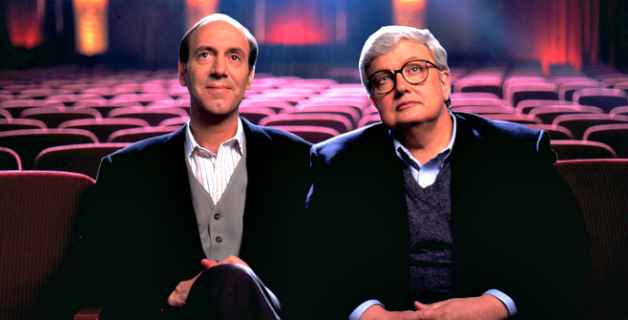
Beforehand, people would watch TV shows and movies, read comics and novels, and have to discuss them in person, and eventually over the phone if they had the means. With the digitalization of information now, so much of media conversations has been applied online, where anyone is able to voice their opinion.
On paper and often in practice, there’s no problem with this. It provides greater means for free speech and expression. But as digital media has altered how people watch entertainment, and thus forced industries such as Hollywood to react in turn, the presence of nuanced discussions seems to have become drowned out by more hyperbolic and seemingly aggressive approaches to media criticism, especially on sites such as YouTube and Twitter.
This is generalizing of course, and the internet being accessible to anyone is bound to create a variety of discussions. But one of the shortcomings of the internet is that anyone is able to create and spread misinformation, and how information is presented isn’t always received in the way it was intended.

YouTube Movie Reviews
Reviews of products have been around for a long time, but platforms such as YouTube have created entire subcultures of reviewers—people who create videos of themselves giving their thoughts on toys, shows, video games, books, food, lootboxes, movies, and even other YouTube videos. The movie reviewing scene is especially a prevalent one that’s exploded in the past few years and has drawn praises and criticisms alike. These movie reviewers are different from professional film critics in the conventional sense in that most are not employed by a company or platform, but rather use YouTube to share their criticisms and its algorithm to monetize their reviews. Regardless, these reviewers are watched by thousands of people, who use their content as understanding what that person thinks of a film.
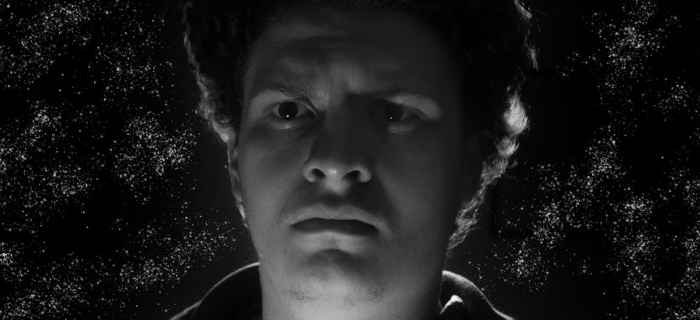


However, there seems to be an underlying belief by some of the viewers that these reviewers’ words are absolute, that their personal thoughts on a movie or show is exactly how that movie is like. Thus, they may already form opinions on a movie or show without ever having watched it themselves. People are allowed to do what they wish without hurting anyone at the end of the day. If people don’t want to watch something, whether because they read or watched a review, watched a trailer, or word of mouth, chances are they never felt strongly about watching it in the first place.
However, I do believe there’s a misconception among the fans of these reviewers in terms of understanding what a review actually is. A lot of these viewers seem to believe that reviewers are meant to validate their beliefs on a movie (whether they watched it or not) rather than give their honest opinions on the movie. This is reflected by viewers’ takes on their review in the comments section, specifically for someone such as Your Movie Sucks Dot Org, a YouTube movie reviewer with a prolific following. In his Infinity War quickie review, many of the comments show people deflecting his thoughts on the film’s humor or even overall quality by pointing out jokes he’d made in the video that they personally found to be poor. While they’re entitled to their opinions, these comments seem to believe pointing out their own distaste of YMS’s jokes is a valid counter for his thoughts on the movie’s comedy, rather than addressing why they believed it worked for them.
This contradicts the very nature of a review, which is a “critical appraisal of a book, play, film, etc. published in a newspaper or magazine”. This definition has obviously expanded to digital media, but regardless still stands. Whenever an individual speaks their thoughts about a product, whether it’s a film, book, or even shampoo, they’re giving a review.
There are multiple review sites/apps that allow customers of a place or service to voice their experiences and thoughts on said place or service. Google Reviews, Yelp, TripAdvisor, Amazon Customer Reviews, etc. are all used and looked at by people to gauge what they can expect from a business, and determine whether they’ll decide to support that business or not. Everyone realizes that the reviews are simply the opinions of those business’ customers who were willing to post their opinions, and these opinions are able to determine the fate of a business, whether due to customer service, sanitation, product quality, etc.
Yet when it comes to reviews of art, the discourse seems to change. Reviewers all have their own different ways of reviewing, which is often reflected by the personalities with which they present themselves. This coupled with their editing styles and the types of films they review attract certain audiences, as with other creators on YouTube. Unlike more traditional reviews of films seen in sites such as New York Times or NPR, YouTube film reviews are more likely to be less professional, which shouldn’t be surprising.
The entire concept of the site is founded on allowing anyone to create their own video to be viewed by anyone, there is no executive level that filters what’s allowed to be seen or not, with the exception of advertisers and YouTube’s recent guidelines. Most of these videos are people speaking their thoughts on a movie in front of a camera, in contrast to journalists being paid to write and publish reviews on sites such as NPR. The latter must adhere to more pre-established guidelines and criteria for how they write their reviews, while the former is free to make their own presentation, receive feedback, and change it or not accordingly. The former also generally gains more attention, as today’s fast-paced, attention-based digital age incentivizes people to prefer visual media for reviews rather than going through the slogging chore of reading. Thus, the intersectionality between these platforms is likely very small.
As the title implies, they give their opinions on movies they watch, yet there seems to be a section of the audience who go in watching these creators expecting their opinions to align with theirs. This can most often occur with creators who target a specific genre or genres of films such as superhero or horror or adapted films, or ones who deliver their opinions in more blatant or unconventional ways. YMS has very often received criticisms of his reviews for being too harsh, redundant, and pretentious. While the validity of these criticisms is subjective, they show a reaction to the discrepancy between YMS’s reviews and other movie reviewers.
Most YouTube film reviews show which movies a reviewer is more fond of, and YMS’s case has shown to more often favor arthouse/indie films than the average YouTube movie reviewer. It shouldn’t be a surprise to anyone familiar with his content that YMS can be described as a cinephile (a cynical one at that), someone who is highly passionate about films, particularly indie ones. This has caused some to label him contrarian, as his passion for these types of films is shared only with niche, indie moviegoing audiences and contrasts with his thoughts on more blockbuster, safer, audience-pleasing films such as the Marvel Cinematic Universe (MCU).

This isn’t to imply that YMS enjoys only the former and not the latter, as he’s done fairly positive reviews outside indie films before. But his reviews of the MCU have gained negative reactions due to him voicing his disinterest of it. This isn’t surprising considering how much of a cultural presence the MCU has had on pop culture and moviegoers.
YMS’s lack of interest in the MCU just comes down to personal preferences, it’s simply not for him. Yet if one were to look at the comments sections for his MCU reviews, it’s saturated with many people upset over his reviews and even attacking him for having the “wrong opinion” or “shit taste” or “not understanding it.” Rather than accepting he has a differing opinion, these people seem to feel wronged by someone having the audacity to criticize anything MCU, because, how can they? It doesn’t fit with their beliefs on it, so it must be wrong.
To be fair, YMS’s constant cynicism obviously won’t appeal to everyone, and can be interpreted as being negative for the sake of it. It goes without saying that people can disagree on anything, but some audiences seem to go to these reviewers not to hear their honest thoughts but rather validate their existing opinions. Thus, when a reviewer shifts away from the viewer’s expectations, they vehemently deem the reviewer for not only having poor taste but somehow being a poor movie reviewer.
Another significant example is CinemaSins, which has recently come under fire from film Twitter and even some of film YouTube, such as media critic Lindsay Ellis and Folding Ideas Dan Olson, for its disingenuous way of reviewing movies. CinemaSins is a YouTube channel that reviews movies through a “sincount”, in which they go through the movie, point something out they see as a flaw, and deem it a sin. It should be noted that the channel is satirical and not meant to be taken seriously as stated by both its fans and the channel itself.
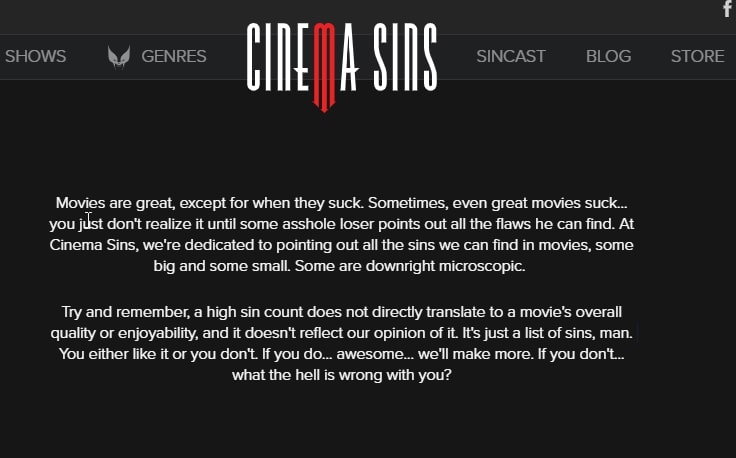
However, there seems to be a disconnect between CinemaSins’ supposed satirical nature and the recognition of said satire among its fans. Many people within the fanbase seem to conflate CinemaSins’ “sincounts” as legitimate film criticism and thus perceive film criticism to involve nitpicking minor details of a film without addressing the larger themes or narrative structures. Patrick H. Willems even made a video on this tendency of picking apart plot holes, which is prevalent in the YouTube movie reviewing community. CinemaSins’ content of satirizing film criticism is easily digestible, especially to people who are casual moviegoers, which can be argued to be most people in general. With a little over 8 million subscribers and +2 billion views, the channel’s form of criticism has massively influenced how people discuss films on the internet.
How CinemaSins and the YouTube movie review scene affects discourse beyond the internet is debatable, and unclear. Fans are obviously affected and how they apply the reviewer’s thoughts on a film is a case by case basis, but there’s no data on how casual moviegoers are affected. Even barring that general movie audiences consist of millions of people with their own opinions and expectations, YouTube’s algorithm structures its users to be categorized into different circles based on the content they view on it. This means that the videos that what one person watches on YouTube can drastically differ from another’s (though there is a possibility for intersectionality) and thus people involved in film YouTube are very likely to not be familiar with what other people watch on YouTube, and vice versa.
Regarding studios, the influence of YouTube film reviews is even more likely to be less present. This can of course depend on individuals within Hollywood on whether they even use YouTube or not, and the likelihood that they’re even aware of YouTube movie reviewers is even smaller. None of this even accounts for the fact that their jobs are clearly demanding and that studio executives simply wouldn’t have time to watch these videos. It’s more likely that they’re only familiarized when trailers of movies they’re involved in are posted on YouTube or other platforms such as Twitter or Facebook.
The backlash against the recent trailer for the Sonic movie and director David F. Sandberg uploading a behind the scenes YouTube video on 2018 superhero film Shazam also show that those within the industry are affiliated with online discourse in some way. Actors and actresses are likely more involved with online reactions and discourse, as they are obviously the ones who are more likely to bring in more tickets and have larger PR with fans of certain films. (Spoilers ahead) The largest discussion surrounding the 2017 Ghost in the Shell live-action film adaption was Scarlett Johansson playing the protagonist who was a Japanese woman placed in a white woman’s body; the same actress addressed the backlash she received for taking a role as a transgender man in a film Rub & Tug, which she withdrew from. Additionally, actor Zachary Levi addressed online mob mentality opposing the MCU Captain Marvel film, defending actress Brie Larson and asserting there was no competition between the two.
While CinemaSins maintains that they’re satirical in nature, their influence regardless has birthed a pushback from smaller, more niche film circles. Many of these circles happen to be within YouTube’s video essayist community, many of which make videos on film reviews, film history, or film techniques. This community hasn’t been afraid of lampooning CinemaSins for finding its influence on film criticism to reduce the discourse as being disingenuous and hyperbolic.
This is obviously only a small minority of people for many reviewers but it speaks to how people perceive and discuss media criticism and also ties into the potential toxicity of fanbases.
Fanbases
Fanbases are not by their nature good or bad, they’re simply a collective group of people who share a similar interest in a piece of media or a product. But like anything else, fanbases can consist of anyone, including those who may be wrathful towards anything that critiques the media they like. But as seen on the internet, especially in the past two years, the toxic minority of a fanbase are often the loudest, and thus are often the most seen. YouTube is an example; there are thousands, even millions of videos with thousands of views and likes or dislikes, and the comments sections are often toxic and filled with senseless arguments and trolls. Yet the amount of comments is almost always much smaller than the number of views or likes/dislikes. Most viewers simply don’t comment at all, only the ones who go out of their way to have their thoughts seen, and these thoughts can often be negative, or even just pointless memes.
Fanbases can develop such strong attachments to the media they admire that the fans create their own identity around that media. Thus, whenever that media is critiqued, such fans take it as a personal attack on them. While there are outliers with certain people genuinely attacking a community for liking certain media, even a nuanced critique of a show or movie can attract copious amounts of pushback. These can quickly devolve into arguments and childish name-calling, something that we all know occurs all the time, every day on the internet. It goes without saying that the access and anonymity of the internet contribute to these arguments, but this ties into how people discuss media on it.

Having an opinion on media on the internet has become tied to one’s identity. If someone likes a certain, movie, show, video game, etc. they’re labeled with some title related to that piece of media. A tribalistic attitude emerges in which people feel the need to categorize others based on their interests and thus generalizing them, rather than looking at them on an individual basis. This has extended into a sense of self-entitlement with media, where people feel entitled to the fictional narratives they follow, and when their interpretations of such narratives are changed or challenged, they lash out, often at the actors or creators themselves. Many assume all media created must appeal specifically to them, and thus a piece of media has no worth if it doesn’t.
Misinformation is another factor tied to media discourse on the internet, a result of average consumers being ignorant of the production processes that occur behind the scenes of entertainment media. A lot of this can be can be faulted on the companies and industries not being transparent on these processes, save for films, shows and games releasing behind the scenes commentaries. The internet’s vast array of information means not everything will be accurate. A lack of critical thinking and education on media literacy can lead to people believing misinformation, especially if it validates their preconceptions (Looking at you, Facebook).
Fanbases aren’t exempt from spreading misinformation, ironically even on the media they follow, especially regarding the reception. Criticizing something doesn’t require being an expert on what’s criticized; we’ve all heard the old saying that someone doesn’t need to be a chef to tell whether their toast is burnt or not. However, being educated on media is created, from its influences to creator/studio intentions, can help provide insight into what that media was aiming for and how one approaches their criticism of it. One doesn’t have to be an expert, but it doesn’t hurt to be informed, especially if you care about the work being critiqued. For example, since the trailer of the Thundercats reboot, many have critiqued all modern western cartoons for baring the infamous “Calarts style” and thus the character designers and animators on these shows are “lazy”.
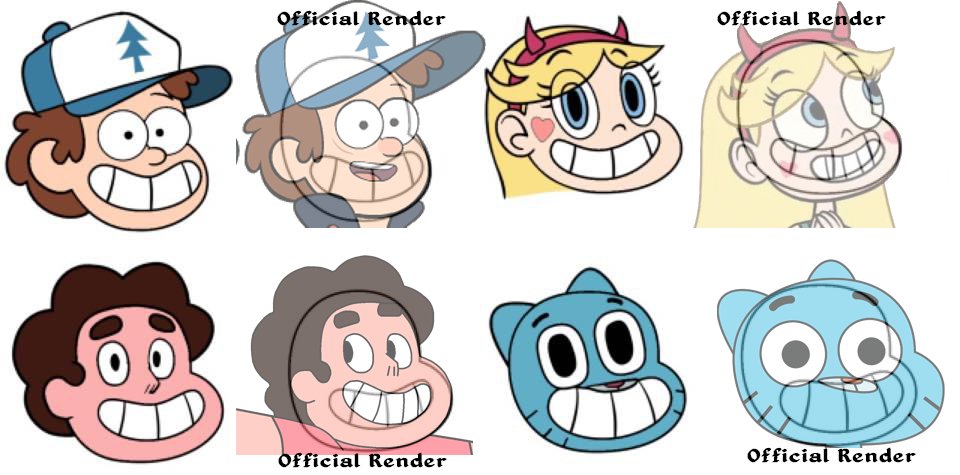
People are entitled to their beliefs, but these critiques fail to address the historical background of the buzzword and it generalizes all western cartoons despite others outside such critiqued shows being produced with their own styles. First, the term “Calarts style” itself makes no sense as CalArts is an art school, not a style. While there are artists from these shows such as Adventure Time, Regular Show, Star vs the Forces of Evil, Steven Universe, etc. who went to CalArts, not all of them did, and none of these shows share the exact same styles. Steven Universe creator Rebecca Sugar went to the New York School of Visual Arts, so attributing CalArts on SU holds no water. While CalArts’ animation program has been critiqued for being homogenous in its curriculum, there’s no secret agenda being perpetrated by a body of artists in thousands of student debt to “ruin western animation” as some have claimed. Ironically, none of these critiques mention legitimate problems with CalArts such as their immense attendance costs shared with many other art colleges.

The term itself was coined by Ren and Stimpy creator John Kricfalusi (who was exposed to have pursued and been in a sexual relationship with a woman when she was underage, as well as other sexual behaviors with her and another woman) in 2010 as a way to dismiss cartoons that he described as superficial carbon copies of Disney’s 60s’ animation designs. Because many of these cartoons which didn’t meet his personal standards were created by CalArts graduates such as Brad Bird, John K. used the term as one that recycles a certain look. On his blog, K claimed that Disney’s Nine Old Men “kept doing the same things over and over again – and that’s what all the animators copy today- the decadent stuff, rather than the skills.” He then adds that artists inspired by copies of the 60s Disney animation “unconsciously absorb it and regurgitate it in their films until the next generation comes along and copies their copies. Most Cal Arts graduates will say there is no Cal Arts Style, but everyone who didn’t go there – especially if they have wider influences -can spot it instantly.”
Now, the term has become a buzzword for any western cartoon that simply adheres to roundish features and having “bean mouths”, or more blatantly any cartoon that people don’t like the style of. Many critiquing it don’t address that it’s a stylistic trend that’s occurred multiple times in the U.S animation industry. These trends result from key individuals having a visual impact on the industry and defining a term period’s look. Hanna Barbara cartoons are notorious for this, as are the 90s Cartoon Network shows. Creators such as Craig McCracken, Genndy Tartakovsky, Butch Hartman, Seth McFarlane, and Rob Renzetti (who are ALL CalArts graduates, by the way) worked on each other’s shows as writers, character designers, and storyboard artists, thus influencing each other’s’ styles.
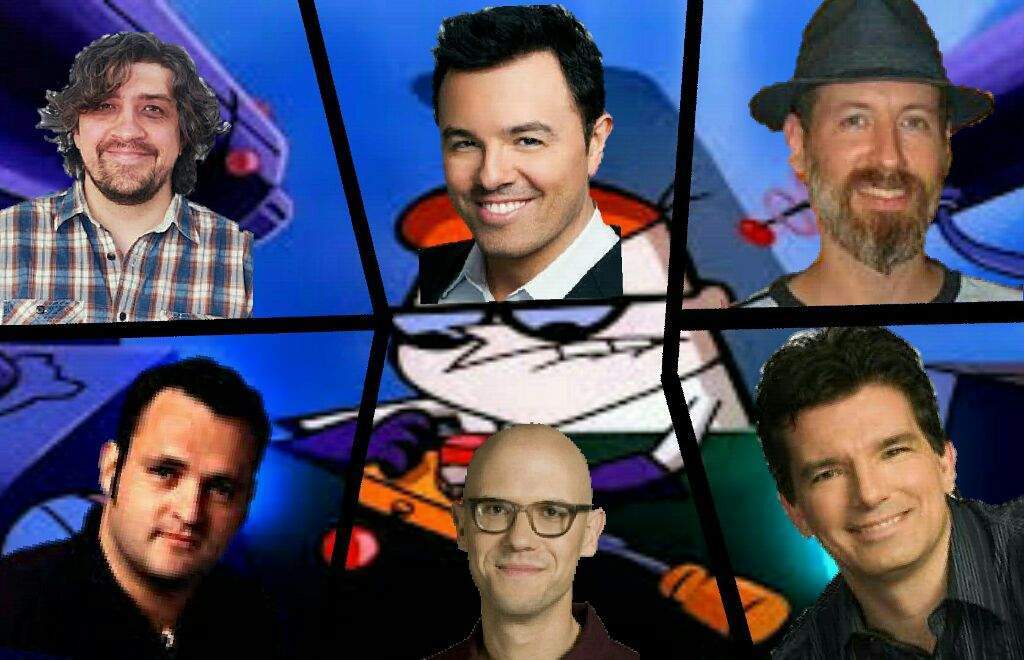
One doesn’t have to be fond of these trends, however, there’s an underlying hypocrisy when people cherry-pick certain modern cartoons (and only U.S based ones at that) for trying to prove the industry’s so-called “decline”, but not only never mention past trends themselves, but continually praise the shows from such eras.
And no, not all western cartoons are befallen to this trend, as this completely dismisses cartoons being produced outside these specific cable network channels. 2D animated shows and films are created in countries such as Mexico, Canada, and France, all of which hold their own industries and art schools. There’s Japan of course, which arguably has been criticized for baring an even larger presence of homogenous visuals in its animation industry due to cultural attitudes, small scale, and catering to the most profitable demographic that is the local Japanese otaku.
Animation has become more accessible due to digital media and come with varying styles. There are many independent animation creators and studios that can be found online on Newgrounds and YouTube. Some examples are Ross O’Donovan, SleepyCabin, the Mickey Mouse shorts, Sun Creature with their Travel Oregon animation ad; the Tales of Alethrion web series created by Danish animators Mikkel Mainz and Kenneth Ladekjer; animator Tom Law; Wolf Smoke Studio’s Batman of Shanghai and Kungfu Cooking Girls; Sylvain Marc; French action cartoon Lastman; Felix Colgrave; animated music videos; anything from Gobelins and Cartoon Hangover, and much more.
Netflix itself has been heavily investing in animation on an international scale with anime, Castlevania, Carmen Sandiego, F is for Family, Love Death and Robots, and haven’t been shy of hiring great animation talents such as Alex Hirsch, Craig McCracken, Jorge Gutierrez, and Nora Twomey. Yet all these are dismissed or virtually unknown simply because they aren’t CN, Nickelodeon, or 2D Disney animation.
The criticism displayed isn’t inherently a problem in as much as it is the tendency to dismiss any civil discussion. Everywhere, anyone can see that any forms of disagreement on the CalArts case specifically result in outrage from people who seem upset by their opinions being challenged. Many dissenters simply try to inform them of the reasons I addressed previously, but vehemently refuse to indulge in these discussions unless they validate their preconceptions.

The animation discourse has itself become a spectrum of extremist tribalism between those who embrace new cartoons while still appreciating past ones, and those who reject any modern western cartoons and prefer to remain in their nostalgic bubbles. There’s barely any space for nuanced discussion where people are willing to understand each other’s viewpoints and explain theirs, and those that exist are rare. As is the nature of the internet.
What do you think? Leave a comment.











Excellent work and an absorbing read. I’m going to send a link to this article to some friends. Two thumbs up from me:)
Thanks, glad you liked it!
nuance in criticism is so important! great article!
Interesting piece. I’m a book reviewer through Amazon and occasionally Goodreads, but I would never want anyone to take my reviews as gospel. The fact that some fans of media reviews do exactly that, makes me wonder what on earth we were thinking when we so fully embraced social media. It’s supposed to be anonymous and safe, and yet it’s personal. I’ve gotten some scathing comments on reviews that, while totally unwarranted, were directed to me as a person and stayed with me for awhile.
That being said, a sort of release exists in watching some of the reviews and channels you mentioned. I’ll often hop over to CinemaSins when I need a good laugh–because it’s meant as satire. As satire, it succeeds brilliantly. I also like the rebuttal, “Everything Great About [X Film CS Eviscerated Last Week].” To me, it’s a shame that the nature of social media means these reviews/channels can’t simply be left as satire and entertainment.
Ever watch the Nostalgia Critic or Nostalgia Chick? I love their stuff, and you’d definitely have enough material for a follow-up article if you so choose.
Thanks, glad you liked it!
I’ve only watched a little of Nostalgia Critic, his videos aren’t for me. As for Nostalgia Chick, I prefer her new YT channel that she created to move away from NC. She just goes by her name Lindsay Ellis, and makes fantastic videos analyzing entertainment media.
Hmmm, I must be more old school than I thought. 🙂 I haven’t seen anything she’s done under Lindsay Ellis, but I do appreciate her commentary. Sometimes I think she and NC both go overboard, and I can’t appreciate some of their language/jokes (Christian, youth group veteran, need I say more)? But, I love the fact that Lindsay especially looks at media through a feminist filter and says, “As much as we may enjoy this, with our nostalgia filters off, we need to admit it may have negative messages for the young girls we are now encountering and raising.” The Baby-Sitters Club is a big example for me.
I highly recommend watching Lindsay Ellis’s new videos, the work she and her collaborators put in is amazing to me. She’s articulate, humorous, the editing is exceptional, and overall always provides interesting perspective on how I view media. There isn’t a single video from hers where I walk away not learning something new or at least thinking about a piece of work differently.
Sounds promising! 🙂
Why did we ever need biased opinions?
If anyone needs an explanation as to why we need informed, committed, articulate critics rather than half-arsed online pie-throwers, I’ll just show them your comment.
Quite a few years ago, an old friend of a friend who had been an antique dealer since the 1920’s, invited me to have a look at his backroom collection of furniture. Some of the furniture were classic pieces, hundreds of years old.
He showed me a Louis XV Giltwood Console Table, c. 1750 France. And, asked me “What do you think?” I told him I did not particularly like it. His response: “I don’t care whether or not you like it, what do you think about it?” He then went on to explain why the table was judged to be such a fine example of mid-eighteenth century French furniture.
I believe that it is the same with the current climate of reviewers and internet commenters. We may not like what they have to say about our favorite film/ performance. However, they may have something thoughtful to say that provides a different perspective and opens our minds.
Very cool anecdote.
That’s an authentically interesting story, thank you for sharing it.
Do we care about professional critics anymore?
I feel most general audiences of entertainment don’t. I think it depends on the person. But do you care?
I think we do still value critics and review columns in newspapers online or not. I do feel shortchanged sometimes though when a ‘new’ person in the job is not someone who has a background in the subject specific or has occupied a previous job as a critic in a different periodical. That’s how we end up with TV critics who review one programme per column. Aren’t we paying them to watch a shedload of tv and tell us about more than one thing? That’s perhaps when the reader thinks they might have more to say that’s the critic.
Will we be reading the work of modern critics in one hundred years’ time and will many of the works they critique be getting shown or performed?
Are critics any kind of authority if they’ve never written, produced, or directed a play or movie?
It’s just one more opinion.
As an example, listen to the critics commentary on ‘the matrix’ trilogy.
You’d think they would have an informed opinion on the genre and could easily follow the tropes and ideas behind the movie.
Hint: they were mostly clueless.
Can’t speak about the matrix commentary, but I’m not sure I agree about critics not having authority just because some may not be creators themselves. You don’t need to have made something to criticize it, and I even made this point in my article. I do think it’s important to at least be informed on what’s being critiqued though, as it can allow for the reviewer to better understand any intentions and how the work was made.
Few critics, good or bad, are exponents of the arts they judge. Frank Marcus was both and his reviews were always worth reading, because he brought another dimension to the reviewer’s art. That reviewers often fail to appreciate things that are unusual or new (you mention The Matrix) is understandable. Creative artists are generally always ahead of a critic’s expectations and some aspects of any piece of creative work will also be outside a critic’s knowledge or experience.
The public are also critics, but they are not always right. They might offer their most honest opinions, but how many can tell you how and why a film or play works or fails to work, how it relates to the past and present of the art, exactly what the writer or filmmaker is aiming for in any particular scene and how it is achieved, how an actor might contribute to that purpose? Most people I know are looking for responses to situations of a kind they might make and they judge accordingly. They want the play or film to support how they feel about life. That is not the point of art and that it why I discount criticism from others like myself. It does not help.
The advantage of professional critics is that they tend to actually like and have a lot of knowledge of the thing they are criticising, whereas large amounts of people on online community sites do neither. Their only opinion is ‘everything is crap’.
Surely the people saying we no longer ‘need’ critics are those that never paid attention to them in the first place?
Passive consumers will continue to like what they like with little regard to critical opinion (and there’s nothing wrong with that), but those with a more active engagement with the arts will always want to read (or watch, or hear) well articulated views (even one’s they might vehemently disagree with).
To actively engage with the arts year after year etc,generally takes time and money, together with rather less pressing matters/priorities of a more mundane nature.
I’m sure far more people would take an interest if they had more of these as they seek promotion from the passive consumer league you allude to
Why do we even need news anymore? After all, everyone can make up their own facts nowadays.
Just think for a moment: writing well about a book or film OR a conflict or economic crisis requires knowledge, depth and point of view. Without criticism the big money would just dictate to us what to see and listen. (It already does, but at least criticism offers us an alternative to think differently.)
Another question (and much more difficult) is what makes criticism good.
I think it’s important that there are examples of how to express an opinion in a professional manner that follow some sort of stylistic rules. That is, a writer held to some sort of standards. The opinion itself matters little, but the example of how to articulate that opinion matters. Discourse has sunken pretty low.
Agreed. The opinion itself can be positively or negatively received depending on how it’s presented. People who are snobbish with their opinions will receive pushback and interfere with engagement.
I know most of the critics I follow have their own unique ways of explaining their thoughts in well-rounded ways that make me understand the topic and why they felt the way they did. I also cite YMS again, as a lot of the criticism targeted at him pertains to his cynical tone. It’s simply his way of expressing himself, and I don’t care for it, but I’m nowhere near as put off by it as some others are.
Criticism is a difficult art to master. The critic must be intelligent, insightful, and open minded, in addition to being very knowledgeable about the art form s/he is criticising. A critic must be an objective and impartial judge. A critic must be able to explain technicalities and difficulties and teach the rest of us how to interpret and understand art works on a number of different levels. That means that a critic must also be able to write well and clearly. A critic is also a human being and cannot help being influenced by what s/he likes and dislikes, but care must be taken to avoid personal taste getting in the way. Criticism is a delicate and balanced craft and, therefore, a very difficult one.
Good critics understand that they are evaluating art created by another person. But, they are evaluating a work of art, often new, in the present time, whereas art is generally created to last into the future, when attitudes and knowledge and taste are likely to be very different. That is why I dislike the whole concept of stars and other modes of “marking” a unique creative work as though it were the product of a pupil in high school or college. It is absurd and profoundly impertinent. I often see good films given two stars, because they were not understood by critics who knew less than they ought to have done and were not willing to give enough thought to what they saw. Likewise I have been misled into looking at a film given five stars and that I found tedious in the extreme. Let’s get rid of the marking system and leave works of art to be appreciated by each individual as a wholly new experience. None of us needs to be guided into liking or disliking a piece before exposure to it.
We will always need critics and we will always be grateful to those who interpret difficulties for us and teach us to see and appreciate what we might otherwise overlook. This digital age gives every person able to log-in a false sense of equal worth in the marketplace of ideas and intellect. The contributions of the good and honest critic is probably more necessary now than it ever was in the past.
I agree with everything you said except for a critic being “objective”. A critic is supposed to articulate their personal thoughts on something; what they’re providing is their subjective perspective on it. Saying they must avoid personal taste getting in the way contradicts the fact that they’re a human being with likes/dislikes. The closest way to a critic being “objective” is whether they’re sincere with their criticism, but unfortunately, this idea that art can be “objectively bad/good” has taken over online discourse.
The thing about critics is that you can get to know them, in terms of how they view things against how you do, and this means you can get a better insight in a film (or play, book, whatever) than you can from the opinions of people you don’t know.
No need for critics any longer. Their time has come and gone.
When exactly was ‘their time’ then? Was there a period where you paid heed to their views which has now passed or, as I suspect, have you never took much notice of them? Is it because people are so thin-skinned these days they can’t abide to read opinions which might clash with their own?
Storytime. A very long time ago as a young actor in my very first professional production I was introduced, in the bar following the show, to the theatre critic for the local newspaper in Victoria, B.C. Whereupon I accidentally upturned an entire tray of glasses full of beer onto his head and torso. No one else at the table – just him. I got a good notice from him anyway with no mention of the soaking and I’ve always been grateful to him that he didn’t take the opportunity to make his review of the show about that accident or about himself.
During my career the critics to whom I have bared myself have not always been either so gracious or so kind and all too frequently some have written reviews inferring that they themselves would have written/directed/acted far more effectively than what they witnessed. I used to write letters to editors inviting those critics to give it a go. None did sadly and I’m sure we’re all the poorer for it.
Credibility died since internet was made.
If I want a rating or a general consensus I’m far better served by review aggregators e.g. IMDB for movies, Amazon for products, etc.
I don’t tend to watch a movie nowadays until I’ve searched for the IMDB rating, and a critics’ opinion wouldn’t sway me one way or the other, principally because they seem to place more of an onus on pretentious nonsense like artistic integrity than entertainment.
Media criticism can help avoid standardisation of thinking.
People are interesting when they have an informed and opinionated opinion on things.
Professional reviewers have, through experience and reception, evolved to give opinions based not only on their own personal tastes but a broader set of comments to help you decide whether you may find it interesting.
Social media merely portrays the prejudice and intellect of those commenting.
The comments section here is, I suppose, social media.
Ok, I’m basing my comments on my opinion of the quality of social media diatribe.
I haven’t thought this through have I?
Some professional critics are up their own arses too, thinking on.
The problem now is we have the digital mob who think everything spouted online is some kind of over-riding right when in fact it’s only opinion and often badly or ill thought out opinion. Most people don’t understand nor appreciate the role real critics play. Good criticism advances the arts, culture and political discourse. Bad criticism encourages hostility, intolerance and ignorance. For evidence of the latter look online!
What is needed is an effective way for an audience to simply participate in being critical.
We still need criticism in the age of opinions. Otherwise what would people steal and pass off as their own opinion?
No review has ever put me off something, but most reviews worth reading put me on to something that I will follow up. They are, at best an education, based on the hours and range of knowledge of the critic. Its about skill and application and applies to most things.In everyday life I find its rare to have an actual discussion about for example, a novel. People just say it was “good” or it was “crap”. A lot of online stuff is just that or the writer slags someone off. Pointless stuff and utterly boring, in contrast, well written, often very funny criticism is a pleasure to read, even if you know little or even dislike the subject.
I concur.
Professional critics tend to look different at things compared to visitor ones.
Both have value.
I don’t read the review, nothing really against them its just they give so much of the plot away.
Interesting discussion. I also don’t read reviews for this very reason, but it is good to know that the banality of reviewers and posters is still continuing and should continue to be ignored. Thanks for sharing.
A good essay with interesting insights.
Interesting discussion topic that should be brought up more often. Thanks for starting the conversation.
This is actually something I’d read.
very interesting exploration. It is perhaps emblematic of our time that all are critics. Well, many are. Thanks to social media, consumers of media, consumers of everything in fact, not only have the ABILITY to critique in a community, but we have been trained that it is essential. The rise of reality TV has fostered the desire to judge. Indeed, the core driver of most reality TV is judgement. We are asked to judge, encouraged to measure our judgement alongside onscreen elites and ‘professionals’ and then expected to share our oh so valuable judgments with the social media universe. It is this aspect that allows monetization of the format. In our current fervor for all things digital, clickage currency etc, we have learned to judge. And judge dynamically. However, we will only have found a fruitful relationship with our digital world when we have also developed the ability to know when NOT to judge, or when to just… shut up.
The ease with which people can post reviews has led to a lot of what I call “gosh-whiz” reviewing — uncritical criticism. But for me the worst element of Internet-era media-arts reviewing is lack of quality in the writing.
First step is to stop grading films as if they were kids. An arbitrary grade from 1 to 10 tells me nothing about the subject, and criticism is not supposed to tell you if a movie is good or bad, because nobody can do that for you. I want a critic to look into it and bring an interesting perspective.
“However, there seems to be an underlying belief by some of the viewers that these reviewers’ words are absolute, that their personal thoughts on a movie or show is exactly how that movie is like.” I agree this is a major issue, though reviewers only have so much control over how their audience consumes their work. I once saw a comment on a YMS review saying the user wouldn’t check the movie out because now they knew the “truth” about it. No reviewer is objective in their tastes and criticisms, and I also do dislike the trend, as you mention, of rating a movie based off nitpicks incorrectly called “plot holes.”
Interesting points!
I absolutely love YMS and how he isn’t afraid to give a real opinion, reminds me of Roger Ebert to a T. In addition, I love that he always gives voice to the indie side of film, it doesn’t get nearly enough attention for how many fantastic films it’s created, compared to some of the average or recycled plots and characters that Hollywood dishes out every year.
When I take a look at criticism of any film discussed on any social media platform, I find that the harsh criticism received comes from people who are simply being subjective for the sake of getting views or attention. So, I conducted an experiment: I watched the films that the critics were harshly criticize and found that these films were actually quite good. On the flip side, I also found that the films that the same critics were praising were the ones that deserve one or no star ratings. The best thing to do is to watch the film and judge it for yourself. Plain and simple.
Just felt like sharing this.
Karan Anshuman is an Indian film critic who used to review Bollywood movies in Mumbai Mirror. I remember sometimes enjoying his reviews much more than the films they were based on. Later, he made the transition to directing himself. I remember him saying in his earliest interviews that with his new experience, he empathised better with directors than he did before and as such would not have made the scathing remarks he had made earlier, has he known then what he now knew.
That struck me as it highlighted that critiquing something simply as a user is vastly different to critiquing as an experienced veteran.
“YMS has very often received criticisms of his reviews for being too harsh, redundant, and pretentious.
Because his reviews are harsh, redundant, and pretentious. I’m sorry, but YMS is more than deserving of criticism. And the “just accept that people have different opinions than you” doesn’t let him off the hook for bad faith critiques. I think critics have gotten in their head that just because they are sharing their honest thoughts means they are except from criticism or that others have to accept their criticism as valid, which is NOT the case.
Just because you can criticize something doesn’t mean your criticism are automatically valid. There are good criticism and there is bad criticism. It’s fine if YMS prefers indie movies over mainstream blockbusters, but if can’t approach mainstream films in good faith because of it then people have a right to call him out on it.